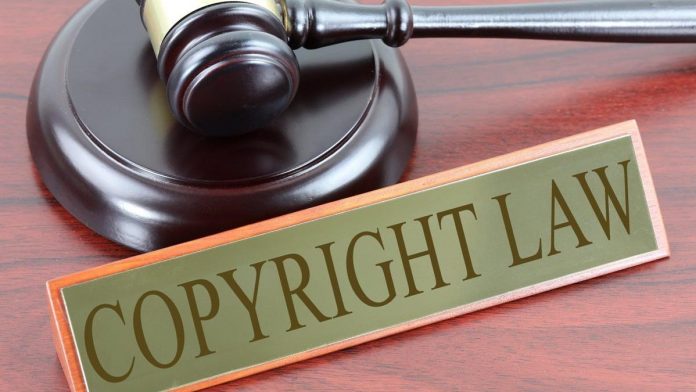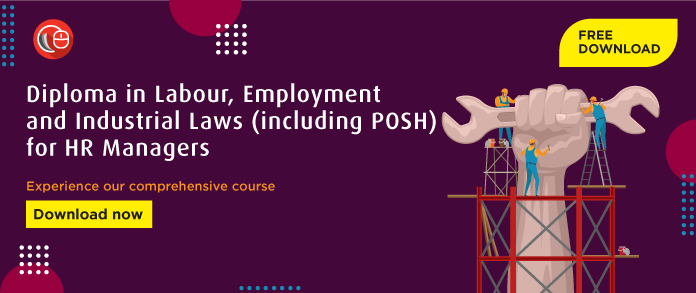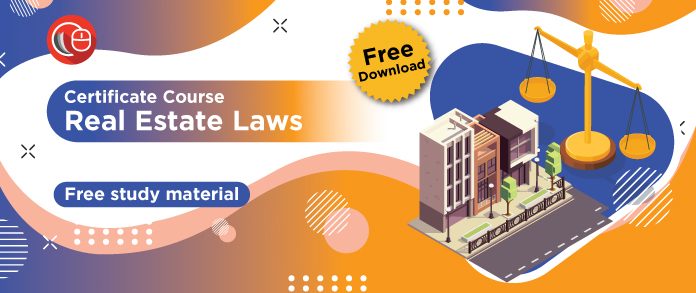This article is written by Vaishnavi Peddibhotla currently pursuing PG Diploma in Media Laws (22-23) from Nalsar University, Hyderabad. This article has been edited by Ojuswi (Associate, Lawsikho).
This article has been published by Sneha Mahawar.
Table of Contents
Introduction
Weddings in India are a celebration of two people’s spiritual union and, in general, a lavish occasion for the guests. The ceremonies are lavishly staged, with lavish dishes, vibrant colours, and musical processions. Western influences have impacted traditional Indian weddings in a big way with the advent of liberalisation and globalisation in the 1990s, and as a result, the extensive use of music, pop music, or film soundtracks in non-traditional parts of wedding celebrations has become commonplace. In today’s Indian weddings, sangeet is the most important element. It’s a moment when a complete family is dancing to the music before the wedding day. But the question is whether this delight comes at the cost of copyright infringement.
Weddings ceremonies & copyright infringements
Regardless of the type of home, sangeet and mehndi have acquired popularity in India. What changes in the scope of the festivities?
The Copyright Act of 1957 states in Section 51(a)(i) that “any person, who does anything for which the owner of the copyright has been granted the exclusive right to do so by this Act, without a licence granted by the owner of the copyright or the Registrar of Copyrights under this Act or in contravention of the conditions of a licence so granted or of any condition imposed by a competent authority under this Act is considered to be infringing the owner’s copyright.” Regardless of whether the institution is commercial or not, a requisite licence must be obtained in order to play pre-recorded music in public areas.
This clause serves as a safety net for owners who, among other things, incur financial damages when their work is illegally aired or performed without their consent. However, the Act does not grant the owner of a musical work total rights by giving some required exclusions in cases when the infringement is deemed to be harmless. Under Section 52 (1) (za) “The performance of a literary, dramatic, or musical work, or the communication to the public of such a work or of a sound recording in the course of any bona fide religious ceremony or an official ceremony held by the Central Government, the State Government, or any local authority, is not considered an infringement”. For a better comprehension of the provision, marriage procession and its attendant social celebrations are included within the scope of “religious rituals”.
Fair use doctrine
The fair use exemption was released in Article 9, section 2 of the Berne Convention, which was eventually popularised as the Three-Step Test. In summary, the test states that it is up to individual legislatures to authorise the reproduction of specific works (a) in limited circumstances, (b) where reproduction does not conflict with regular exploitation of the work, and (c) does not unreasonably violate the author’s legitimate interests.
Protection of fair use is established under section 52(1) of the Indian Copyright Act, 1957, as revised in 2012, which exempts certain acts from the ambit of copyright infringement. While most of section 52(1)’s provisions apply to all copyrightable works, some are limited to specific works. For example, section 52(1)(k) pertains to playing sound recordings in an enclosed room or in a non-profit club; section 52(1)(z) pertains to sound recording storage; and section 52(1) (za) pertains to performance in a religious ceremony, a government ceremony, or marriages.
Expert appointed to assist in fair use of sound recordings
In the recent case of Phonographic Performance Limited (PPL) and Lookpart Exhibitions And Events, Private Limited, Justice Pratibha Singh of the Delhi High Court has requested an expert opinion from Professor Arul George Scaria on the legislative history and scope of Section 52(1) (za) of the Copyright Act. The precise topic is whether or not music used in marriage ceremonies and social gatherings is excluded under Section 52(1) (za), and whether or not such usage is considered fair use.
In the current lawsuit, the plaintiff, Phonographic Performance Limited, engaged in the business of granting licences for the public performance and communication to the general populace of sound recordings premised on assignments that had been conferred to it by its member record labels, the copyright holders of the audio recordings. While Defendant, Lookpart Exhibitions and Events Pvt. Ltd., is an organisation that manages occasions and offers services, such as DJ services for other social events like weddings. While Defendant argued that it was not necessary to do so, Plaintiff requested an interim injunction in the current lawsuit, asserting that Defendant should have gotten a licence for playing music at various social gatherings that are handled and arranged at commercial venues.
At the initial hearing of the injunction request judge refused to grant an ad-interim injunction in favour of PPL at this time and instead gave the parties time to finish their pleadings in exchange for the defendant depositing a sum of Rs. 1,000,000 with the Registrar General of the High Court in a fixed deposit. The court has directed the expert to provide a written note of arguments on the issue, instructing him to research the provision’s historical origins as well as case law from India and abroad on the subject of fair usage as well as fair treatment of sound recordings.
The matter was taken up on 06th July 2022 a request for intervention under Order I Rule 8A CPC made by Novex Communications Pvt. Ltd. and The Indian Performing Right Society Limited (IPRS), who asserts ownership of a large repertoire of sound recordings and several underlying works respectively. The applicant thus asserts that the potential decision would have a direct impact on this Court in the current lawsuit regarding the issue of infringement exceptions as envisioned by the Act’s Section 52(1)(za). The applicant is allowed to participate in the current lawsuit as an interested party and was asked to file the affidavit within two weeks.
Following the prior ruling dated May 11th, 2022, the Expert, Dr Arul George Scaria, has submitted his written arguments and has virtually joined the hearing. Lawyers are allowed to give their oral arguments on the legal issue brought up in the current case on the hearing date after that. The Expert will virtually join the proceedings on the following date to support the Court. The matter is now listed to come up on 22nd August 2022.
Judicial stand
This matter is ambiguous because of the difference of opinion of the Indian Judiciary in this matter.
In the case of Phonographic Performance v. State of Punjab, the Hon’ble Punjab and Haryana High Court held that reproducing a sound recording without a licence from the copyright society in any event (including a marriage ceremony) would be a violation of copyright, and the court further proceeds to narrowly interpret the words “in the course of any bona fide religious ceremony (marriage)” stated as under:
“A sound reproduction by a DJ performing at such an event is surely a function that is connected to marriage. It is not as if a DJ’s performance amounts to conducting the marriage. Marriage is definitely different from the functions connected to the marriage and the tariff regime applies to performances at such functions even if it has a religious overtone.”
Furthermore, in the case of Devendra Kumar Ramchandra Dwivedi v. State of Gujarat and Ors., as per the Hon’ble Gujarat High Court, the fundamental aim of Section 52(1) of the Copyright Act, 1957 is to exempt the live performances of such creations since there is no commercial objective, no admission charge, and/or admission proceeds are used solely for academic, religious, or charity reasons and not for private monetary benefit. The fair or honest usage doctrine is the most important limitation on a copyright owner’s exclusive rights:
“The Central Government State Government or any local authority can arrange the performance of a literary, dramatic or musical work, officially which will not amount to infringement of copyright or also in connection with a bonafide religious ceremony like Navratri Pooja, Arati, etc. so also marriage procession or other social festivities associated with a marriage, would not amount to infringement of copyright.”
In a sense, the Hon’ble Court has confined the scope of Section 52(1)(za) to the Central Government, State Governments, and Local Authorities, as well as non-commercial purposes.
Notification regarding licence
However, the aforementioned judgments were rendered prior to the Registrar of Copyright’s notification of August 27, 2019, which resolved these issues. Copyright societies have stopped opposing the use of sound recordings in wedding ceremonies, according to the Notification. Other occasions, such as Mehndi, Sangeet, engagement, wedding anniversary, and reception parties, are still ambiguous, and according to Copyright organisations, permission is necessary for utilising sound recordings in such activities.
In light of the ongoing uncertainty and disagreements between copyright societies and hotels, banquets, and other venues, a legislative amendment should be brought to bring some clarity on the scope of use of sound recordings in wedding festivities
After considering the foregoing provisions, the Registrar of Copyright clarified under Section 52(1) (za) of the Copyright Act, 1957, that playing of sound recordings during religious ceremonies, including marriage procession and other festivities associated with marriage, is permitted and such usage does not constitute of copyright infringement, and thus no licence is required.
As a result, the government has emphasised that using sound recordings for weddings and similar activities is not an infringing activity under Section 52 of the Act and that no licence from the Copyright Owner or the Copyright Society is required. The public notice clarifies the situation and attempts to clear up any ambiguity around the clause. However, this explanation raises another question: would the use of the sound recording in the course of any wedding or similar festivities held in a hotel or commercial premises necessitate obtaining a licence? A reference to Section 52(k) is made in order to grasp the intent underlying this query:
“(k) the causing of a recording to be heard in public by utilising it,-
(i) in an enclosed room or hall meant for the common use of residents in any residential premises (not being a hotel or similar commercial establishment) as part of the amenities provided exclusively or mainly for residents therein or
(ii) as part of the activities of a club or similar organisation which is not established or conducted for profit;”
In light of section 52(k), the recording to be played in the general populace must be done in a confined setting or auditorium for the evident use of residents, or as part of the celebrations of a club or similar arrangement, provided that it is not a hotel, commercial institution, or for-profit institution. Hotels and other business places, such as banquet halls, are thus free from the idea of a legitimate act of recordings played in public.
As a result, the language in the notice emphasising that no licence is necessary for using music recordings for weddings as well as associated celebrations doesn’t completely resolve the disputed matter. Despite the notice explicitly stating that sound recording is protected under Section 52 for weddings and associated festivities, it is unclear if this protection will also apply to weddings and related functions held in a hotel or other connected commercial institution.
In Novex Communications Private Limited v. Union of India & Anr, numerous sound recordings’ copyrights are owned by the petitioner-company, Novex Communications Private Limited (Novex), which is in the business of issuing permits for the use of its sound recordings in public. Novex submitted the current writ petition contesting the legality of a public notice from August 27, 2019, published a notice that the Registrar of Copyrights claimed to interpret Section 52(1)(za), and determined that no permission was necessary to be sought to the use of sound recordings during marriage-related activities.
In the current Writ Petition, Novex argued that the Registrar of Copyrights had overstepped his authority and entered the legislative realm, which is illegal, by interpreting or defining the scope of Section 52(1) (za) in the public notice. Additionally, Novex claimed that the public notice violated the Indian Constitution’s provisions because it interfered with its fundamental freedom to conduct business under Article 19(1)(g).
The P&H High Court ruled that “there could not be a general interpretation of the provision as stated in the public notice and that the question of whether specific acts would fall within the exempted categories listed under Section 52(1) of the Copyright Act, 1957 would have to be decided based on the facts of each case.”
It also ruled that the public notice did not state by what authority it was issued and could not revoke the copyright owner’s legal ability to bring civil or criminal legal action for copyright infringement. If the interpretation outlined in the public notice was followed, it could be abused by infamous individuals who would play sound recordings for profit in commercial spaces. The court also held that by relying on the interpretation, the police could refuse to prosecute similar cases of copyright infringement.
According to the Court’s ruling, Novex’s fundamental rights and safeguards under Article 19(1)(g) were also violated by the Public Notice, which was also published in breach of the theory of separation of powers. The public notice was revoked by the P&H High Court in light of the aforementioned conclusions.
International perspective
In this section, we will see the position of different countries regarding how they deal with the matter of licensing sound recording for wedding ceremonies and other functions.
Position in Italy
The simple performance of a song live or recorded in Italy entitles the performer to royalties in the form of Società Italianadegli Autori ed Editori (SIAE taxes), which must be paid to the copyright owner of the song regardless of who the artist is. Before the wedding day, a list of music or the music programme, known as the bordereau, must be given to the SIAE authorities, who will then determine the rate of royalties that must be paid. One receives a certificate stating that their bordereau and musicians are SIAE-approved after paying the SIAE levy and following specific SIAE requirements. Before the authority authorises any contract related to the wedding, the owners of Italian wedding venues demand this certificate.
Position in Philippines
In the Philippines, weddings are considered public occasions. It is a social gathering at which a large number of individuals, including the family’s closest social acquaintances as well as others from beyond the family’s typical circle, gather to celebrate the marriage of the bride and groom. The Sound Recording Rights Society, Inc. (SRRS) is a Philippine Collective Management Organisation (CMO) that offers licences for the commercial use of sound recordings held by its members. The society licences copyright-protected sound recordings for broadcasting, transmission, and public performance, as well as mechanical replication of sound recordings for digital storage.
Position in Australia
The owners of copyright in the music, lyrics, and sound recording must provide permission for music to be played in public. Certain copyright licences may already be in place with the couple’s wedding professional or venue. Music performances at weddings, on the other hand, are normally not open to the public, even whether they take place in a hotel, wedding hall, or restaurant because weddings are considered private occasions. Hymns or song lyrics are normally protected as literary works for the lyricist’s lifetime plus 70 years. Copyright will have lapsed if the author died before July 1, 1958. As a result, they can be freely utilised in many ancient hymns or songs. However, permission to reproduce the lyrics may be requested if the songwriter is still living.
Conclusion
The current public outcry over private parties recording and playing music has the potential to be constructively channelled. It is necessary to take measures to comprehend the nature of certain aspects of copyright law that are confusing or ineffective in practice. This can ensure that we have more effective and practical copyright laws, which will help our society as a whole have a brighter future. The recent judgement of the P & H High Court set aside the notice released by the government. This order is a major game-changing and can be seen as a positive step for the copyright owners however, the negative side of the order can be against the interest of the general public as they cannot use the sound recordings without acquiring a proper licence. The question that arises is if everyone can manage to afford to get the licences in India. Can this be practically possible? It has to be seen if the upcoming judgement by the Delhi High Court will align with the judgement of the P&H court or if the court may bring out a different angle that will strike a balance between upholding the primary objective of Copyright Law and the interest of the general public at large.
It would be noteworthy to see if the clauses can be interpreted in a way that balances the interests of all parties involved, especially with the Indian context in mind.
References
- https://thewire.in/law/delhi-hc-seeks-expert-help-on-whether-event-firms-need-licence-to-play-music-at-weddings.
- https://www.siae.it/en/online-servicesterm/licences-for-private-parties
- https://soundsrightph.weebly.com/about.html
- https://www.trudythecelebrant.com.au/wedding-blog/weddings-and-copyright
- https://www.borealnet.org/the-delhi-high-court-appoints-an-expert-to-assist-in-the-fair-dealing-of-sound-recordings-during-marriage-ceremonies-under-s-521za-of-the-copyright-act/
- https://spicyip.com/2019/09/band-baaja-baaraat-copyright.html
- https://copyright.gov.in/Latest_Notice37.aspx
Students of Lawsikho courses regularly produce writing assignments and work on practical exercises as a part of their coursework and develop themselves in real-life practical skills.
LawSikho has created a telegram group for exchanging legal knowledge, referrals, and various opportunities. You can click on this link and join:
Follow us on Instagram and subscribe to our YouTube channel for more amazing legal content.
 Serato DJ Crack 2025Serato DJ PRO Crack
Serato DJ Crack 2025Serato DJ PRO Crack












 Allow notifications
Allow notifications


